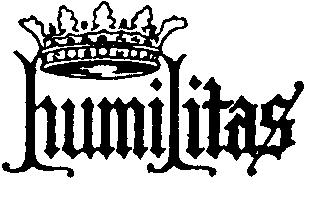VI. PROFILE OF SCALABRINI
"Let me be intoxicated with the cross"
Unnlike other saints of the same period, Scalabrini’s life does not bear the halo of miracles, a fact that comes almost as a relief.
However, there is something miraculous in his trust in Divine Providence (see depositions at the diocesan proceedings).
Scalabrinians have a special feeling when they recall that their first four confreres sent to the Americas set out trusting only in Divine Providence; two days before they were to sail the Founder still did not have the 25,000 lire for their fares. The money arrived anonymously from Genoa on the eve of their departure.
His beloved St. Charles at the end of his life had said that the whole of the Christian faith is summed up in love for the cross and that no other books are needed when there is the Crucifix.
Scalabrini’s life was full of crosses: apart from the concern for all the churches (his pastoral visits were certainly not pleasant strolls at that time!), there was the one placed on his shoulders by his enemies, followed by the even heavier one of the intransigent Catholics, and continuing on to Miraglia, who created a schism in the very home of this apostle of unity who was already so saddened to see Catholics divided among themselves for political and philosophical reasons. This schism affected his health with the daily stabs of six years of martyrdom, and eventually it grew into open insult and aggression.
Scalabrini’s holiness lies in his initial acceptance of the cross from the hand of God as a work tool, and toward the end in having actually carried it with joy.
We said "toward the end": Scalabrini’s life also has the edifying quality of not having a ready made form from the start, but displaying the forces that contribute more and more to shaping it: first among them the cross.
This progressive form of holiness is not that of a private ascetic, but the one asked of him by his work as a bishop. Scalabrini in not a holy man and a bishop, but he is holy because he is a bishop.
The Scalabrini Museum at the Mother House in Piacenza contains a group sculpture depicting the bishop praying to the Patron St. Victor for an end to the Miraglia schism, portrayed as a snake. Alongside this sculpture, almost symbolically, are the bishop’s instruments of penance. His ascetical life deepened during those terrible years, like St. Charles’ during the plague. His true mortification, however, was interior.
Scalabrini’s words on the cross are among his most beautiful:
"The cross: the Church has us carry a golden cross on our chest, but it often becomes a rough iron [= sword] which rends the soul."
"The bishop bears a cross without the image of our beloved Jesus. Why? Because we must love the cross even without the consolation of seeing him: Fac me cruce inebriari - Let me be intoxicated with the cross!"
"Clasp the pectoral cross to my heart and repeat again and again: Fac me cruce inebriari ‘Let me be intoxicated with the cross!’"
Fac me cruce inebriari "‘Let me be intoxicated with the cross!’ I will repeat often, pressing the pectoral cross to my heart. Humiliations, grieves, insults and bitter disappointments are part of God’s plan .... I shall never be without them, nor am I without them now .... My God, may you be blessed! Courage in the cross of Jesus Christ!"
This last quotation dates from 1901. And, as Bishop Caliaro his biographer said, if we had to choose a motto to identify Bishop Scalabrini, the "Fac me cruce inebriari" (or [O Mary,] let me be intoxicated with the cross") from the Stabat Mater, could be one of the most "complete".
"If I could only sanctify myself! become holy! hoc est omnis homo (= this is the real problem). Blessed are you who have always been holy; I strive to become so, but I am afraid I shall never reach that state, not even with a freight train" (Scalabrini-Bonomelli correspondence, 1897, 338).

